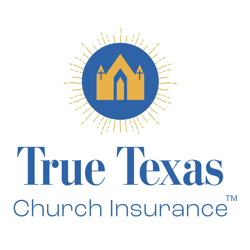Charles had spent the last several weeks working with a church insurance specialist trying to find coverage for his church in Frisco. He had done this work because his church had received a non-renewal notice from their previous insurance carrier giving them a 60 day notice that they needed to find coverage elsewhere. Charles now had two different proposals in his hand and was trying to understand the difference not only in the policy coverage, but also the companies. He didn't want to choose poorly and then end up not being able to have a claim paid.
As he dug deeper into the details, he found out that the two proposals were from both admitted and non-admitted insurance companies. He wasn't completely sure what that meant and began asking questions of his independent insurance agent who specializes in church insurance policies.
What is an Admitted Insurance Company?
Charles' agent began to explain to him that admitted insurance company is one licensed and regulated by the insurance department of the state of Texas. This type of insurance company must follow state laws and regulations, providing a level of oversight that can be reassuring. The easy way to think about admitted insurance companies are those really large companies that have commercials on TV broadcasts.
One of the biggest advantages Charles saw with an admitted insurer was the guaranty fund protection. If the insurer were to go bankrupt, the state-backed fund would step in to help cover claims, giving the church a financial safety net. For Charles, this added peace of mind seemed like a significant advantage. If his church faced a major loss, the last thing they would want is to deal with a failed insurer. The state’s backing of admitted carriers meant they had an additional layer of security that could be crucial in times of disaster. However, that wasn’t the whole picture, and Charles wanted to explore all of his options before making a decision.
What is a Non-Admitted Insurance Company?
On the other hand, the non-admitted insurance company offered more flexibility. These insurers are not licensed by the state but can still legally provide coverage. Because of their flexibility, they are much more common in the Property & Casualty Insurance that is provided for commercial lines in Texas. Church Insurance falls under this umbrella.
Charles learned that non-admitted companies aren’t subject to the same regulations as admitted insurers, which allows them to offer customized insurance policies, particularly for churches with unique or high-risk properties. This was a critical point for Charles to consider, as his church had an older building that required specific coverage.
However, Charles also discovered a drawback: no guaranty fund protection. If the non-admitted insurer went bankrupt, his church would have no state-backed safety net to fall back on. This made him pause. While the flexibility of non-admitted insurers was appealing for the specific needs of his church, the financial risks involved if the insurer failed could leave his congregation vulnerable.

When to Choose Admitted Insurance
Charles started to think about when an admitted insurer might be the better choice. For churches with traditional risks—such as general commercial property coverage and liability protection—an admitted insurance company can provide solid coverage with the state-backed protection that comes from regulation of insurance contracts. In these cases, the transparency and oversight of an admitted insurer offer peace of mind, knowing that the church’s policy is backed by the state in case of insolvency.
For Charles, who was focused on ensuring the long-term protection of his congregation, this aspect of admitted insurance was a big selling point since he was acting as a fiduciary for his Frisco church. The idea of having state oversight, combined with guaranty fund protection, made it feel like the safer option. If the church’s insurance needs were standard and the price wasn't too high, this might be the best path forward.
When to Consider Non-Admitted Insurance
But what about when churches, like Charles’ congregation, face more unique or high-risk circumstances? Charles' Frisco church was in a very risk hail zone while also having an older building. This meant that their exposure to loss limited the admitted options that were available to them for the upcoming policy term.
Charles had to consider whether a non-admitted insurance company might actually be the better choice, despite the lack of state-backed protection. Non-admitted insurers often provide additional coverage options that admitted companies won’t, such as for older buildings, specialized ministries, or churches located in high-risk areas prone to natural disasters like hail storms or hurricanes.
For Charles’ church in Frisco, their aging building and location made non-admitted coverage appealing as the annual cost was in line but the property coverage was significantly better. Non-admitted insurers often have more flexibility in underwriting, allowing them to cover risks that admitted carriers might shy away from. The commercial underwriter for this non-admitted insurance company was able to put a package together that provided great risk management for the church because it reduced their potential out of pocket payments during a claim.
While the lack of state protection was a concern, Charles knew that finding a company willing to customize coverage to meet their specific needs was also important. He also had a greater peace of mind knowing that the financial stability ratings of this particular company were very high.
Key Factors in Deciding Between Admitted and Non-Admitted Insurance
As Charles weighed his options, he realized that the decision came down to several key factors: the risk profile of the church, their budget, and how good the financial stability ratings of the companies were on both sides. Churches with newer buildings and more traditional needs might lean toward the state-backed security of admitted insurance. However, those with unique risks or older properties, like Charles’ church, might not only benefit from the flexibility of a non-admitted carrier, they may be forced into using a non-admitted surplus lines company as the only option for coverage.
Charles also realized the importance of working with an experienced church insurance specialist. Without the guidance of a knowledgeable, experienced agent, making these decisions could be overwhelming. He learned that a specialist could help him navigate the trade-offs between admitted and non-admitted policies, while also making sure that his church was adequately protected without overextending their budget.
How True Texas Church Insurance Can Help
In the end, Charles knew that choosing the right insurance company was essential to protecting his church and its congregation. Whether he opted for the security of an admitted insurer or the flexibility of a non-admitted one, the decision required a deep understanding of the risks and needs specific to his church. It was about more than the annual cost. It was about the total cost of risk that he had to address.
For churches facing similar decisions, True Texas Church Insurance, offered exclusively through Insurance For Texans, provides customized solutions to meet each church’s unique needs. Our church insurance specialist start with questions so they can understand the unique needs, missions, and ministries that your church has. With guidance from specialists who understand Texas churches, you can feel confident that your congregation is protected, no matter what path you choose.
Click the button below to connect with an expert who can help you navigate your church insurance options and find the right coverage for your ministry.



